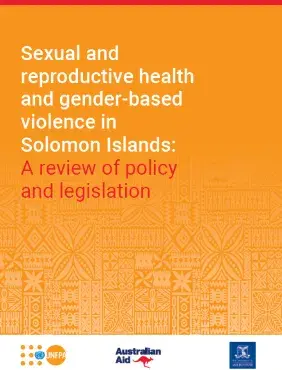Who we are
What we do
Publications
Publications
Fact Sheet
Transformative Agenda Booklet
UNFPA's Transformative Agenda is a comprehensive programme aimed at driving profound and positive change for women, adolescents, and youth, including persons wit...
Read more
Technical Reports and Document
Guidance for a monitoring and evaluation framework for schoolbased Family Life Education in Fiji, Kiribati, Samoa, Solomon Islands, Tonga and Vanuatu
Family life education (FLE) is a curriculum-based process of teaching and learning about the cognitive, emotional, physical and social aspects of sexuality and family formation. A ...
Read more









